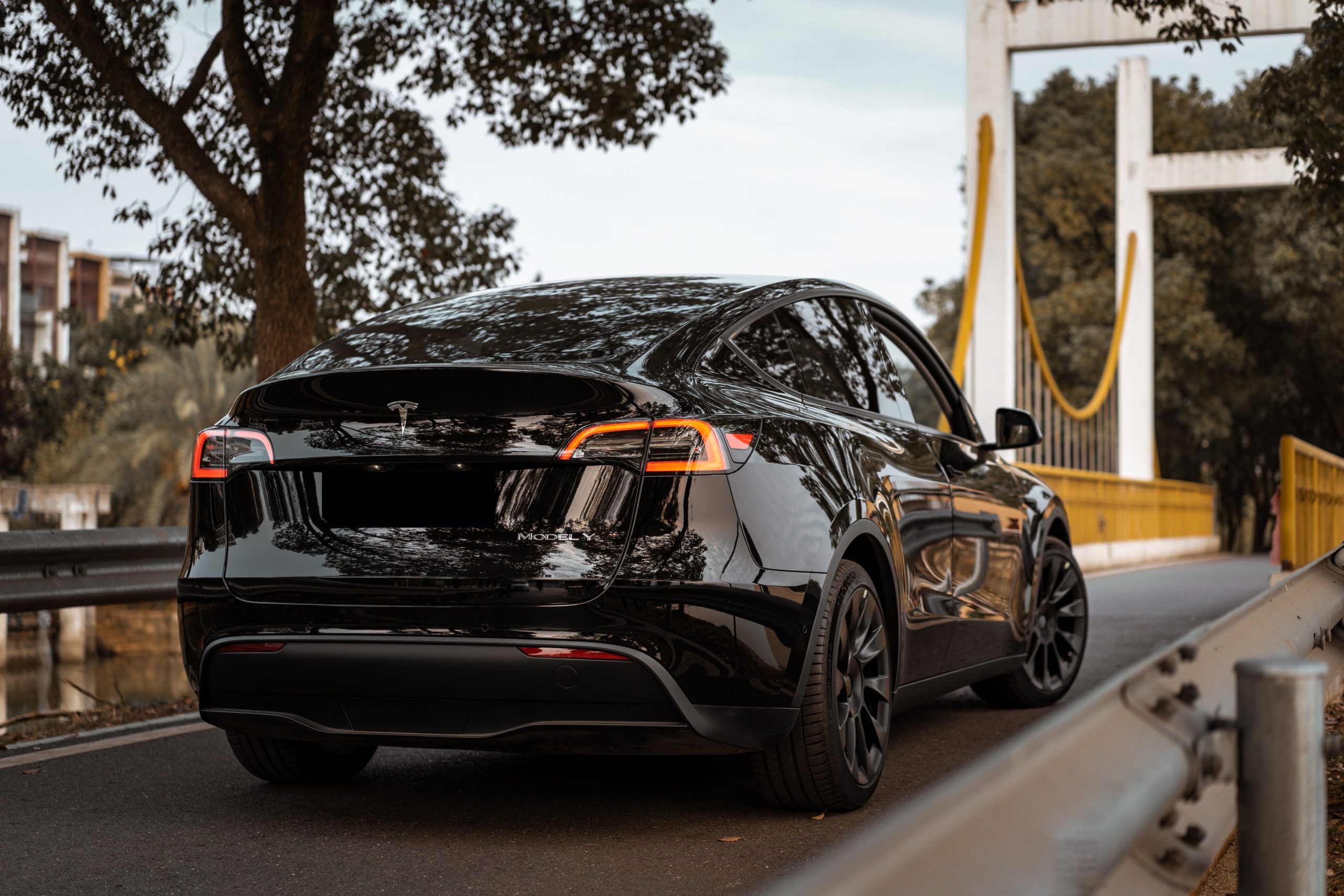
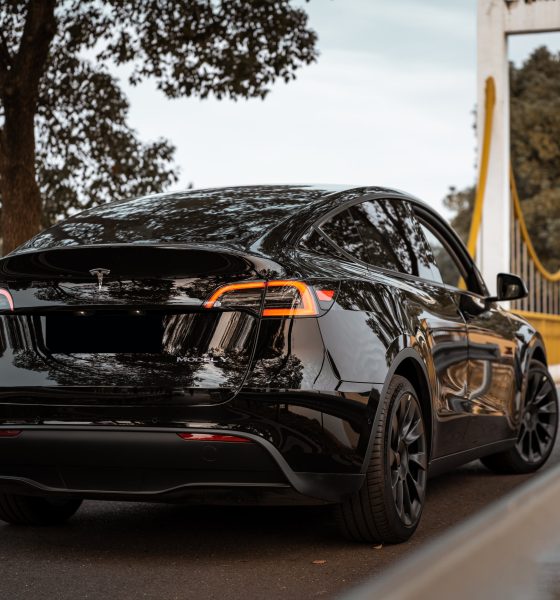
News
EVs like Tesla are cutting pollution levels and reducing health problems: study
Electric vehicles are pretty much inevitable at this point, with carmakers, led by all-EV disruptors such as Tesla, transitioning their respective fleets to electric. Yet despite this, there are still a lot of skeptics who argue that electric vehicles do not really do anything useful for the environment.
A study from the Keck School of Medicine of the University of Southern California has provided some real-world observations about electric vehicles and how they positively impact the environment. The researchers’ study leveraged publicly available datasets to analyze a “natural experiment” occurring in California as residents transitioned to electric cars.
The study analyzed data on total zero-emission vehicle (ZEV) registrations, air pollution levels, and asthma-related emergency room visits throughout California from 2013 to 2019. The researchers found that as ZEV adoption rates increased within a particular zip code, the corresponding levels of local air pollution and asthma-related emergency room visits in the areas also decreased.
Erika Garcia, PhD, MPH, an assistant professor of population and public health sciences at the Keck School of Medicine and the study’s lead author, noted that the study shows that changes made at the local level could already improve the health of a community. This is a notable victory for sustainable transportation and the fight against climate change.
“When we think about the actions related to climate change, often it’s on a global level. But the idea that changes being made at the local level can improve the health of your own community could be a powerful message to the public and to policy makers,” Dr. Garcia said.
The study’s findings were outlined in an Abstract published in the journal Science of the Total Environment. A section of the Abstract can be viewed below.
“We conducted a zip code-level ecologic study relating changes in annual number of ZEVs (nZEV) per 1000 population from 2013 to 2019 to: (i) annual average monitored nitrogen dioxide (NO2) concentrations and (ii) annual age-adjusted asthma-related emergency department (ED) visit rates, while considering educational attainment.
“The average nZEV increased from 1.4 per 1000 population in 2013 (standard deviation [SD]: 2.1) to 14.7 per 1000 in 2019 (SD: 14.7). ZEV adoption was considerably slower in zip codes with lower educational attainment (p < 0.0001). A within-zip code increase of 20 ZEVs per 1000 was associated with a − 0.41 ppb change in annual average NO2 (95 % confidence interval [CI]:-1.12, 0.29) in an adjusted model. A within-zip code increase of 20 ZEVs per 1000 population was associated with a 3.2 % decrease in annual age-adjusted rate of asthma-related ED visits (95 % CI:-5.4, −0.9),” the researchers noted in the study’s Abstract.
The study also showed that there is a significant “adoption gap” in low-resource zip codes when it comes to the adoption of zero-emission vehicles (ZEVs). The research team found that while the number of total ZEVs increased over time in California, the rate of adoption was much slower in low-resource areas. This disparity highlights an opportunity to address environmental justice in communities that are disproportionately impacted by pollution and its associated health issues.
A link to the researchers’ study can be found here.
Don’t hesitate to contact us with news tips. Just send a message to simon@teslarati.com to give us a heads up.

Elon Musk
SpaceX secures win as US labor board drops oversight case
The NLRB confirmed that it no longer has jurisdiction over SpaceX.
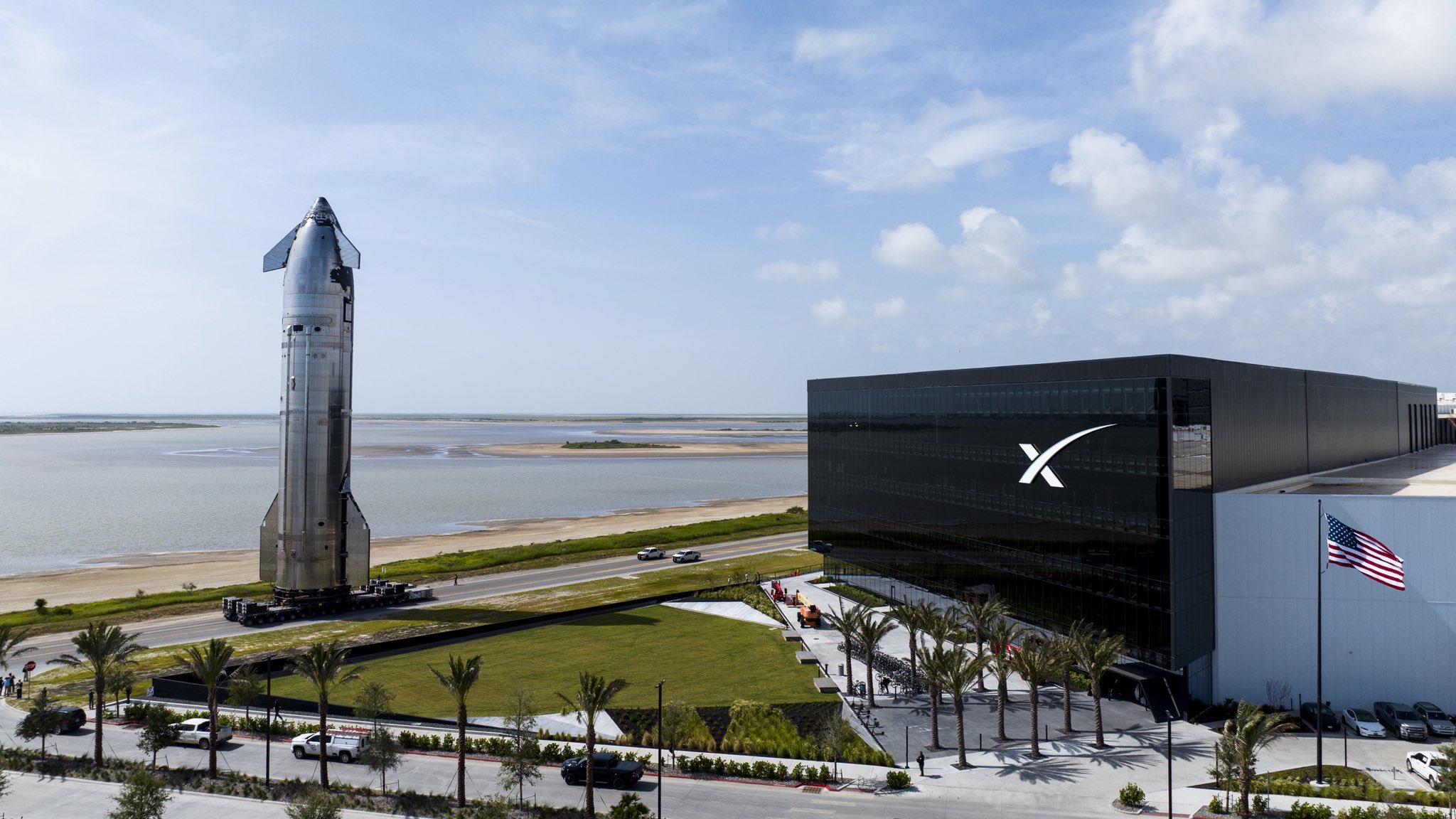
SpaceX scored a legal victory after the National Labor Relations Board (NLRB) decided to dismiss a case which accused the company of terminating engineers who were involved in an open letter against founder Elon Musk.
The NLRB confirmed that it no longer has jurisdiction over SpaceX. The update was initially shared by Bloomberg News, which cited a letter about the matter it reportedly reviewed.
In a letter to the former employees’ lawyers, the labor board stated that the affected employees were under the jurisdiction of the National Mediation Board (NMB), not the NLRB. As a result, the labor board stated that it was dismissing the case.
As per Danielle Pierce, a regional director of the agency, “the National Labor Relations Board lacks jurisdiction over the Employer and, therefore, I am dismissing your charge.”
The NMB typically oversees airlines and railroads. The NLRB, on the other hand, covers most private-sector employers, as well as manufacturers such as Boeing.
The former SpaceX engineers have argued that the private space company did not belong under the NMB’s jurisdiction because SpaceX only offers services to “hand-picked customers.”
In an opinion, however, the NMB stated that SpaceX was under its jurisdiction because “space transport includes air travel” to get to outer space. The mediation board also noted that anyone can contact SpaceX to secure its services.
SpaceX had previously challenged the NLRB’s authority in court, arguing that the agency’s structure was unconstitutional. Jennifer Abruzzo, the NLRB general counsel under former United States President Joe Biden, rejected SpaceX’s claims. Following Abruzzo’s termination under the Trump administration, however, SpaceX asked the labor board to reconsider its arguments.
SpaceX is not the only company that has challenged the constitutionality of the NLRB. Since SpaceX filed its legal challenge against the agency in 2024, other high-profile companies have followed suit. These include Amazon, which has filed similar cases that are now pending.
News
Tesla accuses IG Metall member of secretly recording Giga Berlin meeting
The union has denied the electric vehicle maker’s allegations.
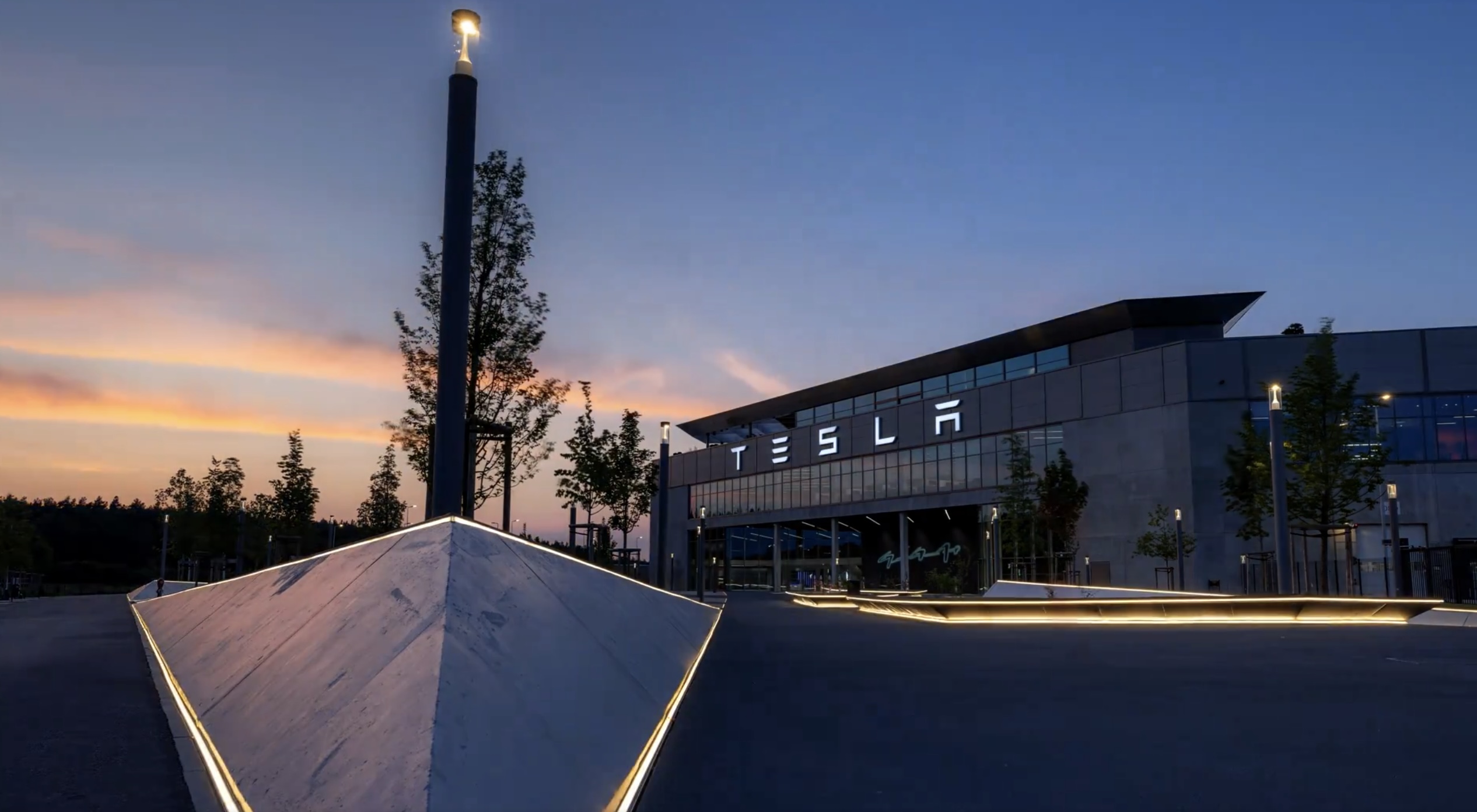
Police seized the computer of an IG Metall member at Tesla Giga Berlin on Tuesday amid allegations that a works council meeting was secretly recorded.
The union has denied the electric vehicle maker’s allegations.
In a post on X, Gigafactory Berlin plant manager André Thierig stated that an external union representative from IG Metall attended a works council meeting and allegedly recorded the session. Thierig described the event as “truly beyond words.”
“What has happened today at Giga Berlin is truly beyond words! An external union representative from IG Metall attended a works council meeting. For unknown reasons he recorded the internal meeting and was caught in action! We obviously called police and filed a criminal complaint!” Thierig wrote in his post on X.
Police later confirmed to local news outlet rbb24 that officers did seize a computer belonging to an IG Metall member at the Giga Berlin site on Tuesday afternoon. Tesla stated that employees had contacted authorities after discovering the alleged recording.
IG Metall denied Tesla’s accusations, arguing that its representative did not record the meeting. The union alleged that Tesla’s claim was simply a tactic ahead of upcoming works council elections.
The next works council election at Giga Berlin is scheduled for March 2 to 4, 2026. The facility’s management had confirmed the dates to local news outlets. The official announcement marks the start of the election process and campaign period.
Approximately 11,000 employees are eligible to participate in the vote.
The previous works council election at the plant took place in 2024, and it was triggered by a notable increase in workforce size. Under German labor law, regular works council elections must be held every four years between March 1 and May 31.
Elon Musk
Elon Musk’s xAI plants flag in Bellevue AI hotspot
The lease places xAI’s new office in one of the region’s fastest-growing tech hubs.
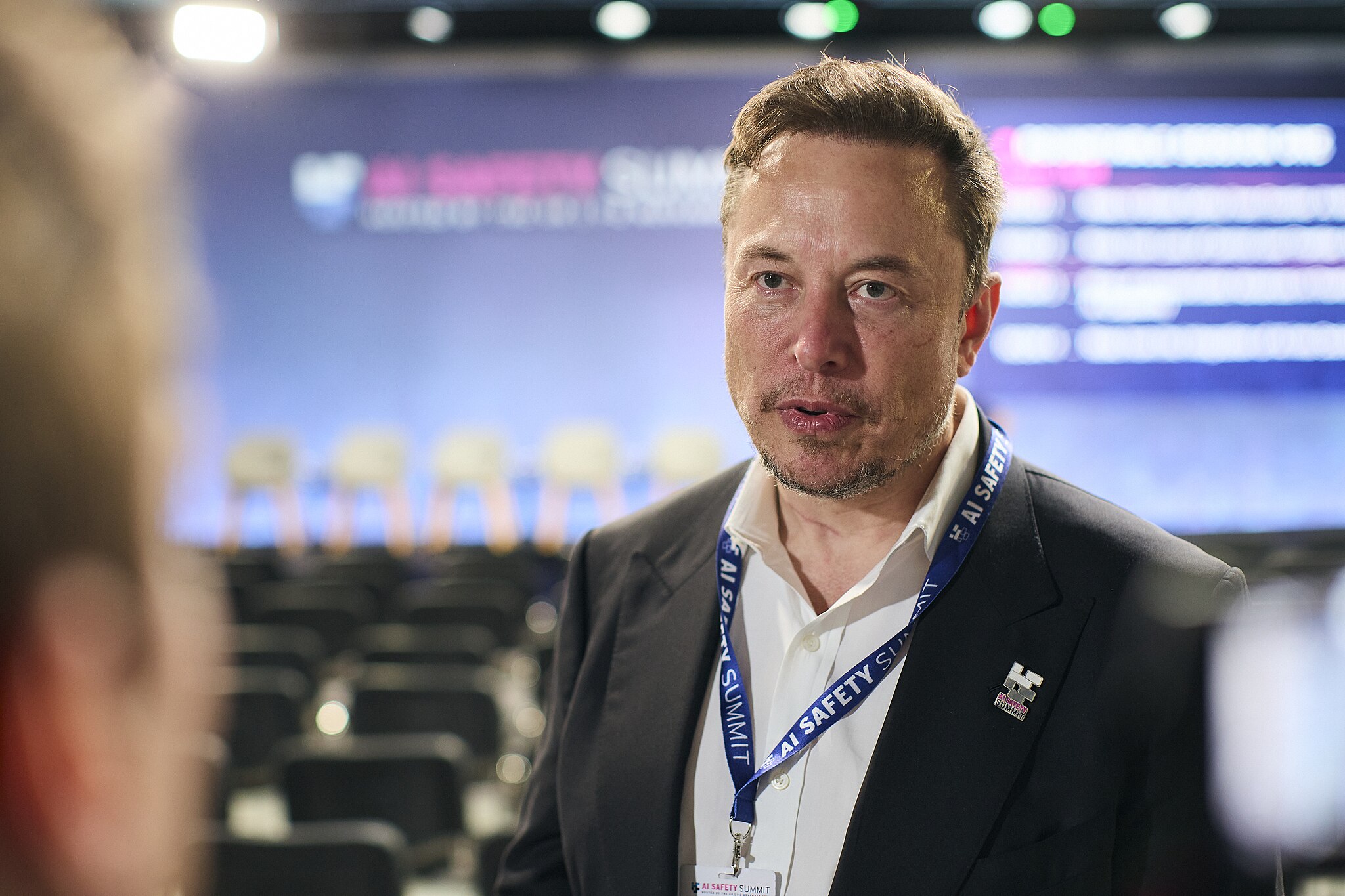
Elon Musk’s artificial intelligence company xAI has leased a full floor at Lincoln Square South in downtown Bellevue, WA, as per city permit filings.
The lease places xAI’s new office in one of the region’s fastest-growing tech hubs.
Public records indicate that xAI leased roughly 24,800 square feet in Lincoln Square South. The location was previously occupied by video game company Epic Games. Lincoln Square South is part of the Bellevue Collection, which is owned by Kemper Development Co.
The lease was first referenced in January by commercial real estate firm Broderick Group, which noted that an unnamed tenant had secured the space, as stated in a report from the Puget Sound Business Journal. Later filings identified xAI as the occupant for the space.
xAI has not publicly commented on the lease.
xAI hinted at plans to open an office in the Seattle area back in September, when the startup posted job openings with salaries ranging from $180,000 to $440,000. At the time, the company had narrowed its location search to cities on the Eastside but had not finalized a lease.
xAI’s Bellevue expansion comes as Musk continues consolidating his businesses. Last week, SpaceX acquired xAI in a deal that valued the artificial intelligence startup at $250 billion. SpaceX itself is now valued at roughly $1.25 trillion and is expected to pursue an initial public offering (IPO) later this year.
Musk already has a significant presence in the region through SpaceX, which employs about 2,000 workers locally. That initiative, however, is focused largely on Starlink satellite development.
Bellevue has increasingly become a center for artificial intelligence companies. OpenAI has expanded its local office footprint to nearly 300,000 square feet. Data infrastructure firms such as Crusoe and CoreWeave have also established offices downtown.








